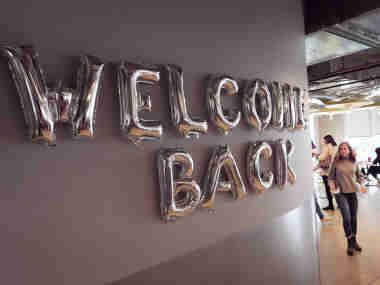Ordering workers back to the office a 'power grab' by bosses, research suggests ( financialpost.com )
Remote workers who’ve been ordered back to the office might suspect the directive is nothing more than a power trip by the boss, and research suggests they’re probably right.
Return-to-office (RTO) mandates are often a control tactic by managers and don’t boost company performance, according to a new research paper from the Katz Graduate School of Business at the University of Pittsburgh. What’s more, the mandates appear to make employees less happy with their jobs.
Article content
Article content
Researchers at the university examined how RTO mandates at 137 S&P 500 companies affected profitability, stock returns and employee job satisfaction. They discovered that companies with poor stock market performance were more likely to implement RTO policies. Managers at such companies were also likely to point the finger at employees for the company’s poor financial showing, seeing it as evidence that working from home lowers productivity. Companies pushing for more days in the office tended to be led by “male and powerful CEOs,” the researchers said, underlining a belief among workers that mandates were being used by leaders to reassert control.
“Our findings are consistent with employees’ concerns that managers use RTO for power grabbing and blaming employees for poor performance,” the authors said in their paper. “Also, our findings do not support the argument that managers impose mandates because they believe RTO increases firm values.”
Indeed, requiring more days in the office did nothing to improve profitability or boost stock prices, the researchers said. But it did seem to make employees miserable, and more likely to complain about the daily commute, loss of flexibility and erosion in work-life balance, according to reviews on Glassdoor. It also made them less trusting of their managers. “We find significant declines in employees’ overall ratings of overall job satisfaction, work-life balance, senior management and corporate culture after a firm announced an RTO mandate,” the researchers said.
